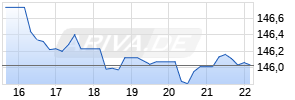
TECVAYLI® (teclistamab-cqyv) biweekly dosing approved by the U.S. FDA for the treatment of patients with relapsed or refractory multiple myeloma
PR Newswire
HORSHAM, Pa., Feb. 20, 2024
Biweekly dosing with TECVAYLI®, the first approved BCMA-targeting bispecific antibody, provides patients with dosing flexibility
HORSHAM, Pa., Feb. 20, 2024 /PRNewswire/ -- Johnson & Johnson announced today that the U.S. Food and Drug Administration (FDA) has approved the supplemental Biologics License Application (sBLA) for TECVAYLI® (teclistamab-cqyv) for a reduced dosing frequency of 1.5 mg/kg every two weeks (Q2W) in patients with relapsed or refractory multiple myeloma (RRMM) who have achieved and maintained a complete response (CR) or better for a minimum of six months.1 There is a continued unmet need for patients with multiple myeloma and this approval allows increased flexibility in dosing schedule for appropriate patients with a weight-based regimen.
TECVAYLI®, which is administered subcutaneously, was the first bispecific antibody targeting B-cell maturation antigen (BCMA) on multiple myeloma cells and CD3 on T-cells to activate an immune response.2 TECVAYLI® was approved in October 2022 for the treatment of adult patients with RRMM who received at least four prior lines of therapy, including a proteasome inhibitor, an immunomodulatory drug, and an anti-CD38 monoclonal antibody.2 This indication is approved under accelerated approval based on response rate. Continued approval for this indication may be contingent upon verification and description of clinical benefit in confirmatory trials. TECVAYLI® has been prescribed to more than 3,600 patients in the U.S. since approval.3
This approval is based on results from the Phase 1/2 MajesTEC-1 study (Phase 1: NCT03145181; Phase 2: NCT04557098). In the Phase 1/2 MajesTEC-1 study, patients were initially treated with the recommended Phase 2 dose (RP2D) of 1.5 mg/kg TECVAYLI® weekly (QW) administered subcutaneously.4 Patients who achieved a confirmed CR or better for six months or longer (Phase 2), were eligible to reduce dosing frequency to 1.5 mg/kg Q2W until disease progression or unacceptable toxicity.1,4
"TECVAYLI is the only BCMA-targeted immune-based therapy with weight-based dosing. Today's approval of biweekly dosing for eligible patients will further enable clinicians to meet the individual needs of patients who may want flexibility in their dosing schedules," said Rachel Kobos, M.D., Vice President, Oncology Research & Development, Johnson & Johnson Innovative Medicine. "As the first bispecific approved for the treatment of multiple myeloma, combined with the longest in-market experience by physicians, TECVAYLI is another example of our commitment to pioneering cutting-edge research to help improve outcomes for patients with multiple myeloma."
About the MajesTEC-1 Study
MajesTEC-1 (NCT03145181, NCT04557098), is a Phase 1/2 single-arm, open-label, multicohort, multicenter dose-escalation study to evaluate the safety and efficacy of teclistamab in adults with RRMM who received three or more prior lines of therapy (n=165).5,6
Phase 1 of the study (NCT03145181) was conducted in two parts: dose escalation (Part 1) and dose expansion (Part 2).6 It evaluated safety, tolerability, pharmacokinetics, and preliminary efficacy of teclistamab in adult participants with RRMM.6 Phase 2 of the study (NCT04557098) evaluated the efficacy of teclistamab at the RP2D, established at subcutaneous 1.5 mg/kg weekly, as measured by ORR.5
TECVAYLI® IMPORTANT SAFETY INFORMATION
| WARNING: CYTOKINE RELEASE SYNDROME and NEUROLOGIC TOXICITY including IMMUNE EFFECTOR CELL-ASSOCIATED NEUROTOXICITY SYNDROME Cytokine release syndrome (CRS), including life-threatening or fatal reactions, can occur in patients receiving TECVAYLI®. Initiate treatment with TECVAYLI® step-up dosing schedule to reduce risk of CRS. Withhold TECVAYLI® until CRS resolves or permanently discontinue based on severity. Neurologic toxicity, including Immune Effector Cell-Associated Neurotoxicity Syndrome (ICANS) and serious and life-threatening reactions, can occur in patients receiving TECVAYLI®. Monitor patients for signs or symptoms of neurologic toxicity, including ICANS, during treatment. Withhold TECVAYLI® until neurologic toxicity resolves or permanently discontinue based on severity. TECVAYLI® is available only through a restricted program called the TECVAYLI® and TALVEY™ Risk Evaluation and Mitigation Strategy (REMS). |
INDICATION AND USAGE
TECVAYLI® (teclistamab-cqyv) is a bispecific B-cell maturation antigen (BCMA)-directed CD3 T-cell engager indicated for the treatment of adult patients with relapsed or refractory multiple myeloma who have received at least four prior lines of therapy, including a proteasome inhibitor, an immunomodulatory agent and an anti-CD38 monoclonal antibody.
This indication is approved under accelerated approval based on response rate. Continued approval for this indication may be contingent upon verification and description of clinical benefit in confirmatory trial(s).
WARNINGS AND PRECAUTIONS
Cytokine Release Syndrome - TECVAYLI® can cause cytokine release syndrome (CRS), including life-threatening or fatal reactions. In the clinical trial, CRS occurred in 72% of patients who received TECVAYLI® at the recommended dose, with Grade 1 CRS occurring in 50% of patients, Grade 2 in 21%, and Grade 3 in 0.6%. Recurrent CRS occurred in 33% of patients. Most patients experienced CRS following step-up dose 1 (42%), step-up dose 2 (35%), or the initial treatment dose (24%). Less than 3% of patients developed first occurrence of CRS following subsequent doses of TECVAYLI®. The median time to onset of CRS was 2 (range: 1 to 6) days after the most recent dose with a median duration of 2 (range: 1 to 9) days. Clinical signs and symptoms of CRS included, but were not limited to, fever, hypoxia, chills, hypotension, sinus tachycardia, headache, and elevated liver enzymes (aspartate aminotransferase and alanine aminotransferase elevation).
Initiate therapy according to TECVAYLI® step-up dosing schedule to reduce risk of CRS. Administer pretreatment medications to reduce risk of CRS and monitor patients following administration of TECVAYLI® accordingly. At the first sign of CRS, immediately evaluate patient for hospitalization. Administer supportive care based on severity and consider further management per current practice guidelines. Withhold or permanently discontinue TECVAYLI® based on severity.
TECVAYLI® is available only through a restricted program under a REMS.
Neurologic Toxicity including ICANS - TECVAYLI® can cause serious or life-threatening neurologic toxicity, including Immune Effector Cell-Associated Neurotoxicity Syndrome (ICANS).
In the clinical trial, neurologic toxicity occurred in 57% of patients who received TECVAYLI® at the recommended dose, with Grade 3 or 4 neurologic toxicity occurring in 2.4% of patients. The most frequent neurologic toxicities were headache (25%), motor dysfunction (16%), sensory neuropathy (15%), and encephalopathy (13%). With longer follow-up, Grade 4 seizure and fatal Guillain-Barré syndrome (one patient each) occurred in patients who received TECVAYLI®.
In the clinical trial, ICANS was reported in 6% of patients who received TECVAYLI® at the recommended dose. Recurrent ICANS occurred in 1.8% of patients. Most patients experienced ICANS following step-up dose 1 (1.2%), step-up dose 2 (0.6%), or the initial treatment dose (1.8%). Less than 3% of patients developed first occurrence of ICANS following subsequent doses of TECVAYLI®. The median time to onset of ICANS was 4 (range: 2 to 8) days after the most recent dose with a median duration of 3 (range: 1 to 20) days. The most frequent clinical manifestations of ICANS reported were confusional state and dysgraphia. The onset of ICANS can be concurrent with CRS, following resolution of CRS, or in the absence of CRS.
Monitor patients for signs and symptoms of neurologic toxicity during treatment. At the first sign of neurologic toxicity, including ICANS, immediately evaluate patient and provide supportive therapy based on severity. Withhold or permanently discontinue TECVAYLI® based on severity per recommendations and consider further management per current practice guidelines.
Due to the potential for neurologic toxicity, patients are at risk of depressed level of consciousness. Advise patients to refrain from driving or operating heavy or potentially dangerous machinery during and for 48 hours after completion of TECVAYLI® step-up dosing schedule and in the event of new onset of any neurologic toxicity symptoms until neurologic toxicity resolves.
TECVAYLI® is available only through a restricted program under a REMS.
TECVAYLI® and TALVEY™ REMS - TECVAYLI® is available only through a restricted program under a REMS called the TECVAYLI® and TALVEY™ REMS because of the risks of CRS and neurologic toxicity, including ICANS.
Hepatotoxicity - TECVAYLI® can cause hepatotoxicity, including fatalities. In patients who received TECVAYLI® at the recommended dose in the clinical trial, there was one fatal case of hepatic failure. Elevated aspartate aminotransferase (AST) occurred in 34% of patients, with Grade 3 or 4 elevations in 1.2%. Elevated alanine aminotransferase (ALT) occurred in 28% of patients, with Grade 3 or 4 elevations in 1.8%. Elevated total bilirubin occurred in 6% of patients with Grade 3 or 4 elevations in 0.6%. Liver enzyme elevation can occur with or without concurrent CRS.
Monitor liver enzymes and bilirubin at baseline and during treatment as clinically indicated. Withhold TECVAYLI® or consider permanent discontinuation of TECVAYLI® based on severity.
Infections - TECVAYLI® can cause severe, life-threatening, or fatal infections. In patients who received TECVAYLI® at the recommended dose in the clinical trial, serious infections, including opportunistic infections, occurred in 30% of patients, with Grade 3 or 4 infections in 35%, and fatal infections in 4.2%. Monitor patients for signs and symptoms of infection prior to and during treatment with TECVAYLI® and treat appropriately. Administer prophylactic antimicrobials according to guidelines. Withhold TECVAYLI® or consider permanent discontinuation of TECVAYLI® based on severity.
Monitor immunoglobulin levels during treatment with TECVAYLI® and treat according to guidelines, including infection precautions and antibiotic or antiviral prophylaxis.
Neutropenia - TECVAYLI® can cause neutropenia and febrile neutropenia. In patients who received TECVAYLI® at the recommended dose in the clinical trial, decreased neutrophils occurred in 84% of patients, with Grade 3 or 4 decreased neutrophils in 56%. Febrile neutropenia occurred in 3% of patients.
Monitor complete blood cell counts at baseline and periodically during treatment and provide supportive care per local institutional guidelines. Monitor patients with neutropenia for signs of infection. Withhold TECVAYLI® based on severity.
Hypersensitivity and Other Administration Reactions - TECVAYLI® can cause both systemic administration-related and local injection-site reactions. Systemic Reactions - In patients who received TECVAYLI® at the recommended dose in the clinical trial, 1.2% of patients experienced systemic-administration reactions, which included Grade 1 recurrent pyrexia and Grade 1 swollen tongue. Local Reactions - In patients who received TECVAYLI® at the recommended dose in the clinical trial, injection-site reactions occurred in 35% of patients, with Grade 1 injection-site reactions in 30% and Grade 2 in 4.8%. Withhold TECVAYLI® or consider permanent discontinuation of TECVAYLI® based on severity.
Embryo-Fetal Toxicity - Based on its mechanism of action, TECVAYLI® may cause fetal harm when administered to a pregnant woman. Advise pregnant women of the potential risk to the fetus. Advise females of reproductive potential to use effective contraception during treatment with TECVAYLI® and for 5 months after the last dose.
ADVERSE REACTIONS
The most common adverse reactions (≥20%) were pyrexia, CRS, musculoskeletal pain, injection site reaction, fatigue, upper respiratory tract infection, nausea, headache, pneumonia, and diarrhea. The most common Grade 3 to 4 laboratory abnormalities (≥20%) were decreased lymphocytes, decreased neutrophils, decreased white blood cells, decreased hemoglobin, and decreased platelets.
Please read full Prescribing Information, including Boxed WARNING, for TECVAYLI®.
About TECVAYLI®
TECVAYLI® (teclistamab-cqyv) received approval from the U.S. FDA in October 2022 as an off-the-shelf (or ready-to-use) antibody that is administered as a subcutaneous treatment for adult patients with relapsed or refractory multiple myeloma (RRMM) who have received at least four prior lines of therapy, including a proteasome inhibitor, an immunomodulatory agent and an anti-CD38 antibody.2 The European Commission (EC) granted TECVAYLI® conditional marketing authorization (CMA) in August 2022 as monotherapy for the treatment of adult patients with RRMM who have received at least three prior therapies, including a proteasome inhibitor, an immunomodulatory agent and an anti-CD38 antibody, and have demonstrated disease progression since the last therapy. In August 2023, the EC granted the approval of a Type II variation application for TECVAYLI®, providing the option for a reduced dosing frequency of 1.5 mg/kg every two weeks in patients who have achieved a complete response (CR) or better for a minimum of six months. TECVAYLI® is a first-in-class, bispecific T-cell engager antibody therapy that uses innovative science to activate the immune system by binding to the CD3 receptor expressed on the surface of T-cells and to the B-cell maturation antigen (BCMA) expressed on the surface of multiple myeloma cells and some healthy B-lineage cells.
For more information, visit www.TECVAYLI.com.
About Multiple Myeloma
Multiple myeloma is an incurable blood cancer that affects a type of white blood cell called plasma cells, which are found in the bone marrow.7 In multiple myeloma, these plasma cells proliferate and spread rapidly and replace normal cells in the bone marrow with tumors.8 Multiple myeloma is the third most common blood cancer worldwide and remains an incurable disease.9 In 2024, it was estimated that more than 35,000 people will be diagnosed with multiple myeloma in the U.S. and more than 12,000 people would die from the disease.10 People living with multiple myeloma have a 5-year survival rate of 59.8 percent.11 While some people diagnosed with multiple myeloma initially have no symptoms, most patients are diagnosed due to symptoms that can include bone fracture or pain, low red blood cell counts, tiredness, high calcium levels and kidney problems or infections.12,13
About Johnson & Johnson
At Johnson & Johnson, we believe health is everything. Our strength in healthcare innovation empowers us to build a world where complex diseases are prevented, treated, and cured, where treatments are smarter and less invasive, and solutions are personal. Through our expertise in Innovative Medicine and MedTech, we are uniquely positioned to innovate across the full spectrum of healthcare solutions today to deliver the breakthroughs of tomorrow, and profoundly impact health for humanity. Learn more at https://www.jnj.com/ or at www.janssen.com/johnson-johnson-innovative-medicine. Follow us at @JanssenUS and @JNJInnovMed. Janssen Research & Development, LLC and Janssen Biotech, Inc. are both Johnson & Johnson companies.
Cautions Concerning Forward-Looking Statements
This press release contains "forward-looking statements" as defined in the Private Securities Litigation Reform Act of 1995 regarding product development and the potential benefits and treatment impact of TECVAYLI® (teclistamab-cqyv). The reader is cautioned not to rely on these forward-looking statements. These statements are based on current expectations of future events. If underlying assumptions prove inaccurate or known or unknown risks or uncertainties materialize, actual results could vary materially from the expectations and projections Janssen Research & Development, LLC, Janssen Biotech, Inc., and/or Johnson & Johnson. Risks and uncertainties include, but are not limited to: challenges and uncertainties inherent in product research and development, including the uncertainty of clinical success and of obtaining regulatory approvals; uncertainty of commercial success; manufacturing difficulties and delays; competition, including technological advances, new products and patents attained by competitors; challenges to patents; product efficacy or safety concerns resulting in product recalls or regulatory action; changes in behavior and spending patterns of purchasers of health care products and services; changes to applicable laws and regulations, including global health care reforms; and trends toward health care cost containment. A further list and descriptions of these risks, uncertainties and other factors can be found in Johnson & Johnson's Annual Report on Form 10-K for the fiscal year ended December 31, 2023, including in the sections captioned "Cautionary Note Regarding Forward-Looking Statements" and "Item 1A. Risk Factors," and in Johnson & Johnson's subsequent Quarterly Reports on Form 10-Q and other filings with the Securities and Exchange Commission. Copies of these filings are available online at www.sec.gov, www.jnj.com or on request from Johnson & Johnson. None of Janssen Research & Development, LLC, Janssen Biotech, Inc., nor Johnson & Johnson undertake to update any forward-looking statement as a result of new information or future events or developments.
© Johnson & Johnson, Inc. 2024. All rights reserved.
1TECVAYLI® U.S. Prescribing Information.
2U.S. FDA Approves TECVAYLI® (teclistamab-cqyv), the First Bispecific T-cell Engager Antibody for the Treatment of Patients with Relapsed or Refractory Multiple Myeloma. https://www.jnj.com/u-s-fda-approves-tecvayli-teclistamab-cqyv-the-first-bispecific-t-cell-engager-antibody-for-the-treatment-of-patients-with-relapsed-or-refractory-multiple-myeloma. October 2022.
3Data on File. Janssen Biotech, Inc. IQVIA DDD 10/25/2022 - 01/26/2024
4Usmani S et al. Durability of Responses With Biweekly Dosing of Teclistamab in Patients With Relapsed/Refractory Multiple Myeloma Achieving a Clinical Response in the MajesTEC-1 Study. 2023 ASCO Annual Meeting – American Society of Clinical Oncology. June 2023. https://ascopubs.org/doi/10.1200/JCO.2023.41.16_suppl.8034#C1916414
5A Study of Teclistamab in Participants With Relapsed or Refractory Multiple Myeloma (MajesTEC-1). https://clinicaltrials.gov/ct2/show/NCT04557098. Accessed February 2024.
6Dose Escalation Study of Teclistamab, a Humanized BCMA*CD3 Bispecific Antibody, in Participants With Relapsed or Refractory Multiple Myeloma (MajesTEC-1). https://clinicaltrials.gov/ct2/show/NCT03145181. Accessed February 2024.
7Rajkumar SV. Multiple myeloma: 2020 update on diagnosis, risk-stratification and management. Am J Hematol. 2020;95(5):548-5672020;95(5):548-567. http://www.ncbi.nlm.nih.gov/pubmed/32212178
8National Cancer Institute. Plasma Cell Neoplasms. https://www.cancer.gov/types/myeloma/patient/myeloma-treatment-pdq. Accessed February 2024.
9City of Hope. Multiple Myeloma: Causes, Symptoms & Treatments. https://www.cancercenter.com/cancer-types/multiple-myeloma. Accessed February 2024.
10American Cancer Society. Key Statistics About Multiple Myeloma. https://www.cancer.org/cancer/multiple-myeloma/about/key-statistics.html#:~:text=Multiple%20myeloma%20is%20a%20relatively,men%20and%2015%2C370%20in%20women. Accessed February 2024.
11SEER Explorer: An interactive website for SEER cancer statistics [Internet]. Surveillance Research Program, National Cancer Institute. https://seer.cancer.gov/explorer/. Accessed February 2024.
12American Cancer Society. What is Multiple Myeloma? https://www.cancer.org/cancer/multiple-myeloma/about/what-is-multiple-myeloma.html. Accessed February 2024.
13American Cancer Society. Multiple Myeloma Early Detection, Diagnosis, and Staging https://www.cancer.org/cancer/types/multiple-myeloma/detection-diagnosis-staging/detection.html. Accessed February 2024.
| Media contact: 1-857-636-0211
Satu Glawe +49 172-294-6264 | Investor contact:
U.S. medical inquiries: |
![]() View original content to download multimedia:https://www.prnewswire.com/news-releases/tecvayli-teclistamab-cqyv-biweekly-dosing-approved-by-the-us-fda-for-the-treatment-of-patients-with-relapsed-or-refractory-multiple-myeloma-302066627.html
View original content to download multimedia:https://www.prnewswire.com/news-releases/tecvayli-teclistamab-cqyv-biweekly-dosing-approved-by-the-us-fda-for-the-treatment-of-patients-with-relapsed-or-refractory-multiple-myeloma-302066627.html
SOURCE Johnson & Johnson

Mehr Nachrichten zur Johnson & Johnson Corp. Aktie kostenlos abonnieren
(Mit der Bestellung akzeptierst du die Datenschutzhinweise)

Hinweis: ARIVA.DE veröffentlicht in dieser Rubrik Analysen, Kolumnen und Nachrichten aus verschiedenen Quellen. Die ARIVA.DE AG ist nicht verantwortlich für Inhalte, die erkennbar von Dritten in den „News“-Bereich dieser Webseite eingestellt worden sind, und macht sich diese nicht zu Eigen. Diese Inhalte sind insbesondere durch eine entsprechende „von“-Kennzeichnung unterhalb der Artikelüberschrift und/oder durch den Link „Um den vollständigen Artikel zu lesen, klicken Sie bitte hier.“ erkennbar; verantwortlich für diese Inhalte ist allein der genannte Dritte.





